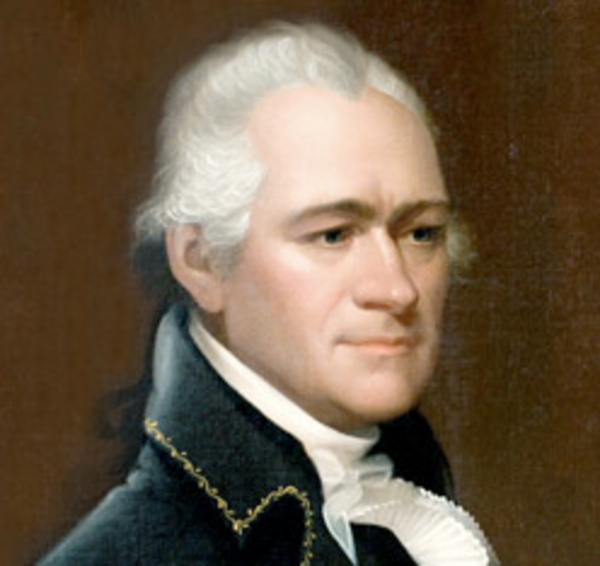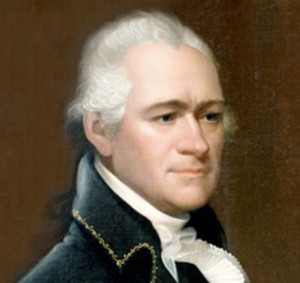World news
Iran, Israel, and Hamilton

Israel’s former Defense Minister Ehud Barak reportedly said that “a plan to attack Iranian nuclear facilities when he was Defense Minister was sabotaged by the hesitancy of fellow cabinet members Yuval Steinitz and Moshe Yaalon, the man who would replace him [at Defense].” The plans, he said, “were drawn up and approved by him and Prime Minister Benjamin Netanyahu sometime between 2009 and 2010.” (Jerusalem Post, August 23, 2015)
If Barak is suggesting that his cabinet colleagues got cold feet, this is the pot calling the kettle black, whose hasty retreat from Lebanon did not add luster to Israel’s name. Be that as it may, Barak’s revelation bolsters the present writer’s long standing argument that Israel needs of a unitary executive (or presidential system) as opposed to its current plural executive. I have supported this position by quoting Alexander Hamilton, who Talleyrand deemed the greatest statesman of his era.
Hamilton defends a unitary executive

Alexander Hamilton. Portrait: Ezra Ames
In the Federalist Papers (No. 70), Hamilton sets forth the most lucid and compelling argument for a unitary executive. He first points out that “Energy in the Executive is a leading character in the definition of good government.” By energy Hamilton does not mean power so much as intellectual energy, which springs from wisdom and self-confidence. As Henry Taylor says in The Statesman “The energy of the statesman should be as purely as possible intellectual; it should be of that rare species which can be combined with equanimity.” One can hardly possess equanimity in a cabinet having ministers representing rival party leaders, one or two lusting to replace the PM.
In any event, Hamilton emphasizes that unity is the first institutional prerequisite for the exercise of energy (the position of Jewish law, which opposes collective leadership (Babylonian Talmud, Sanhedrin 8a). Here is how Hamilton justifies unity in the Executive:
That unity is conducive to energy will not be disputed. Decision, activity, secrecy, and dispatch will generally characterize the proceedings of one man [far more so] than the proceedings of any greater number; and in proportion as the number is increased, these qualities will be diminished…. [This unity] can be destroyed in two ways: either by vesting the power in two or more ministers of equal dignity and authority; or by vesting it ostensibly in one man, subject, in whole or in part, to the control and cooperation of others, in the capacity of counselors.
Because a plural Executive inevitably gives rise to difference of opinion, there inevitably follows the danger of “personal animosity” among those composing the government. Such dissensions, says Hamilton, “lessen the respectability, weaken the authority, and distract the plans and operations of those whom they divide…. [T]hey impede or frustrate the most important measures of the government, in the most critical emergencies of the state.”
Against Iran, Israel needs a unitary executive
Now juxtapose Hamilton’s insights and the awesome danger Israel faces if (or when, God forbid) Iran deploys nuclear-tipped ballistic missiles.
Would you like to contemplate the deliberations of an Israeli cabinet consisting of ministers representing several rival parties? But this, as I have so often said during the past three decades, is the inevitable consequence not only of Israel’s divisive system of multiparty cabinet government. That is the inescapable consequence of Israel’s 67-year infatuation with the dogmatic parliamentary principle of Proportional Representation. This divisive and mischievous principle enables a parochial or single-issue party to disconcert, emasculate, and even paralyze the entire Government!
That certain members of the Netanyahu Government got cold feet and quashed a plan to defang Iran back in 2009 or 2010 means that, thanks to Israel’s irrational system of government, Iran has had five or six years to disperse and harden its nuclear weapons facilities, thus rendering them more impervious to destruction.
What is more, that Yuval Steinitz, a protégé of Netanyahu, opposed the above mentioned plan suggests that the plan did not have the wholehearted support of the Prime Minister. If so, we have to probe a little deeper into Hamilton’s recommendation of unity in the executive.
My study of Hamilton’s voluminous collected works indicates that when Hamilton says that unity in the executive conduces to “energy,” he means by energy not power so much as intellectual energy, which springs from wisdom and equanimity. (Henry Taylor teaches in The Statesman, that “The energy of the statesman should be as purely as possible intellectual; it should be of that rare species which can be combined with equanimity.”)
This helps to explain, if I may digress for a moment, why President George Washington relied so much on Hamilton, who served him more as a Prime Minister than as a Secretary of the Treasury. (By the way, Hamilton, a man of very modest means, held the rank of colonel during the Revolution, had three horses shot from under him, and refused to accept the pension to which he was entitled, on the grounds that that would be demeaning!)
I’ve strayed a long way from Iran, except that the threat confronting Israel by Iran demands a Hamiltonian statesman.☼
-

 Civilization4 days ago
Civilization4 days agoWhy Europe Shouldn’t Be Upset at Trump’s Venezuelan Actions
-

 Christianity Today4 days ago
Christianity Today4 days agoSurprising Revival: Gen Z Men & Highly Educated Lead Return to Religion
-

 Executive5 days ago
Executive5 days agoWaste of the Day: Can You Hear Me Now?
-

 Civilization2 days ago
Civilization2 days agoTariffs, the Supreme Court, and the Andrew Jackson Gambit
-

 Civilization2 days ago
Civilization2 days agoWhy Europe’s Institutional Status Quo is Now a Security Risk
-

 Civilization3 days ago
Civilization3 days agoDeporting Censorship: US Targets UK Government Ally Over Free Speech
-

 Executive3 days ago
Executive3 days agoWaste of the Day: Wire Fraud, Conflicts of Interest in Connecticut
-

 Education4 days ago
Education4 days agoWaste of the Day: Throwback Thursday – The Story of Robosquirrel










Lorene Frischknecht liked this on Facebook.